Examining the role of curriculum in achieving equity
The year 2020 brought attention to many neglected problems in the United States. Black Lives Matter protests were sparked across the country, bringing necessary awareness towards topics that have been disregarded since the birth of our nation. North Penn, a microcosm of our country, strives to maintain a knowledgeable staff and student body. But with the winds of long, overdue change sweeping across the nation, North Penn is taking action.
Dr. D’Ana Waters, North Penn’s Director of Curriculum and Equity, and Ms. Rachel Earley, the curriculum supervisor for the Secondary Humanities courses, have undertaken the task of achieving equity within the North Penn curriculum.
“As director of curriculum equity, I have the really good fortune of overseeing the curriculum supervisors. As far as the equity piece, it’s my job to make sure that all of the students at North Penn have what they need to be successful,” Waters said.
As far as the equity piece, it’s my job to make sure that all of the students at North Penn have what they need to be successful.
— Dr. D'ana Waters, NPSD Curriculum/Equity Director
The work to create equity at North Penn doesn’t stop at improving the curriculum. Waters and Earley work with and supervise the Cultural Proficiency and Equity Executive Committee (CPEEC), which works under four umbrella topics; professional development, disproportionality analysis, parental involvement, and student perspective. All of these different sectors focus on improving the lives of students and staff throughout the district, whether it’s further developing staff members’ understanding and appreciation of different cultural backgrounds, or listening into classroom discussions from students.
CPEEC is working towards a positive change. All of these parts come together and play a vital role in making updates to the curriculum. Although this has been a recent addition, it’s not something that is going away.
In order to examine specific subject areas, North Penn uses a curriculum review cycle in order to see whether or not updates or additions are needed. This may be due to a state mandated change, or simple changes that would benefit the student body.
“Updating the Social Studies curriculum is a multi-prong approach; it’s not only the resources the kids have access to, but also the curriculum our teachers are instructing. At North Penn, we are fortunate to be writing the curriculum with our curriculum committee. We work to get the best resources available, but it’s not strictly the curriculum,” Earley explained. “Particularly this year, it’s very important to have teachers understand how to talk about certain articles in the media and answer or discuss difficult questions. It’s not only that we want to do better in terms of social justice and curriculum in terms of cultural proficiency, but we need to support and keep on the continuation with these changes.”
It’s not only that we want to do better in terms of social justice and curriculum in terms of cultural proficiency, but we need to support and keep on the continuation with these changes.
— Rachel Early, Secondary Humanities Curriculum Supervisor
Beginning in the 2020-21 school year, North Penn High School introduced a new elective; African American Studies. The course, currently offered to juniors and seniors as a Social Studies credit, offers a thematic approach to African American history. It allows students to examine detailed historical events, as well as modern African American culture and experiences.
Yet, the lack of information in our mandatory curriculum hasn’t gone unnoticed. In our Social Studies classes regarding American history, there is an urgency to make major adaptations to the instruction material.
“African American history is American history, and we should be talking about these topics in our classes, and have been especially prominent as we work on curriculum review and professional development. These concepts need to be embedded into our American history courses. That of course, is going to happen,” Earley stated.
African American history is American history, and we should be talking about these topics in our classes.
— Rachel Earley
The student perspective is crucial in gaining an understanding on what changes need to be addressed. AAAC, the African American Awareness Club, is a highly active organization at North Penn that works to not only make fellow peers more culturally aware, but share their stories and experiences. Their annual Colors of Pride assembly allows for the student body to learn about what their peers are experiencing in the community.
North Penn High School English teacher Ms. Sakita Tinsely, along with Dr. Marjorie Diegue, Assistant Director of Human Resources, are the club’s supervisors, who work tirelessly to make sure the club members are able to meet their goals and accomplishments.
“AAAC feeds my soul. Being around kids who are incredibly smart and passionate about this work helps to make me active and informed. I don’t know if I was as happy before AAAC. It’s something that I value that brings me happiness,” Tinsely stated.
As a high school club, AAAC members have consumed many of the instructed topics North Penn provides regarding African American history and culture. And as changes are being made throughout the curriculum, they touch on certain topics and ideas they’d like to see for future students. Especially with Black History Month coming to a close, they stress the importance of continuing to learn about Black history throughout the school year. Members Lauren Kotulka, Sanaa Beaufort, Keenan Washington, and Dominique Bethel shared their ideas and experiences with AAAC, as well as ideas pertaining to North Penn’s equity.
“African American History needs to be part of the curriculum. It’s still American history. We need it to be beyond a once-a-month occurrence in February. It shouldn’t be something you sign up to learn about,” Bethel explained. “It’s great to support Black History Month, but after showing that clip or piece of information, it’s important to go back to the classroom and have a conversation, understand the importance behind it and why it’s vital to Black history.”
African American History needs to be part of the curriculum. It’s still American history. We need it to be beyond a once-a-month occurrence in February.
— Dominique Bethel, AAAC Member
In addition to African American history being taught year-round, the need for a variety of different historical events, values, and ideas need to be present.
“Going forward with the information given out during Black History Month and beyond, students should have the ability to learn more about crucial figures in Black history. Rosa Parks and Martin Luther King Jr are important, but they’re not the only people involved in the process. This has been an evolution for so long,” Washington stated. “And going beyond the history portion, it ties in with English Class as well. Instruction with certain topics like To Kill a Mockingbird comes to mind. Portions of that novel have very uneasy sections, and it’s something not to be joked about or taken lightly. It needs to be taught that these things have meaning and it needs to be fully acknowledged.”
Students should have the ability to learn more about crucial figures in Black history. Rosa Parks and Martin Luther King Jr are important, but they’re not the only people involved in the process. This has been an evolution for so long.
— Keenan Washington, AAAC Member
Furthermore, the changes to the curriculum need to have teachers who are willing to learn and understand the instructed material, and appreciate the value the topics will have on the students.
“In addition to seeing Black history become mandatory K-12, the teachers [should] play a serious role in its instruction,” Beaufort added. “It also helps with the support and understanding from the teacher. They need to help us learn and assist us with issues for all students, even if it means taking the time to re-explain and take the time to help out every individual.”
“At the end of the day, when it comes to fighting for certain topics to be either included or excluded in the curriculum, it sometimes feels like we have to pick and choose our battles. Is it something that we should fight for, or accept the loss and allow someone to get away with misinterpreting certain pieces of information,” Kotulka shared.
AAAC echoes the changes the student body would like to see throughout the entire North Penn School District. They shared ideas ranging from providing online parental resources to help educate students at home, as well as have mulit-cultural assemblies in elementary, middle, and high school. These ideas fall in with the current efforts North Penn is making in order to achieve equity at North Penn.
The school district still has work ahead in order to create a strong and attentive learning environment, as well as an updated curriculum that accurately reflects the experiences and successes of African Americans. With racial justice movements continuing throughout the nation, it’s reassuring to see a school district working towards equity. A simple requirement that deserves acknowledgement and action.
“We’ve been able to see a lot of changes already, but there are still many that need to happen. We still have a lot to do, but I feel really good about some of the things we have already accomplished,” Waters concluded.



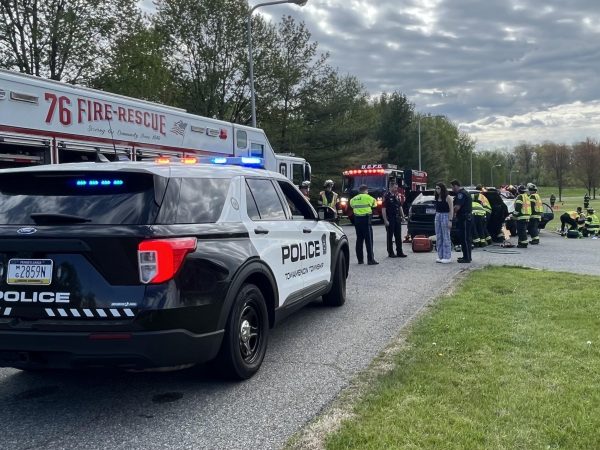
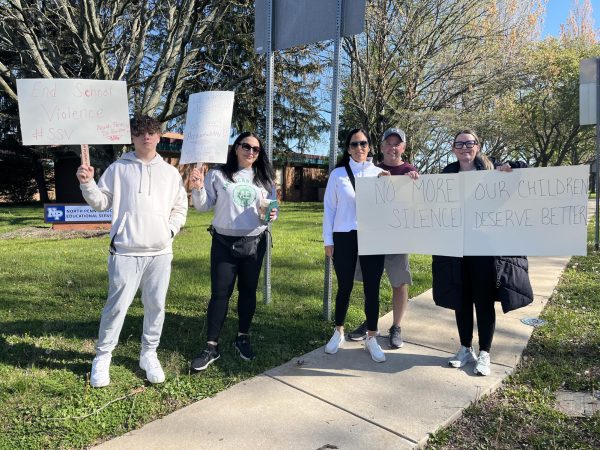
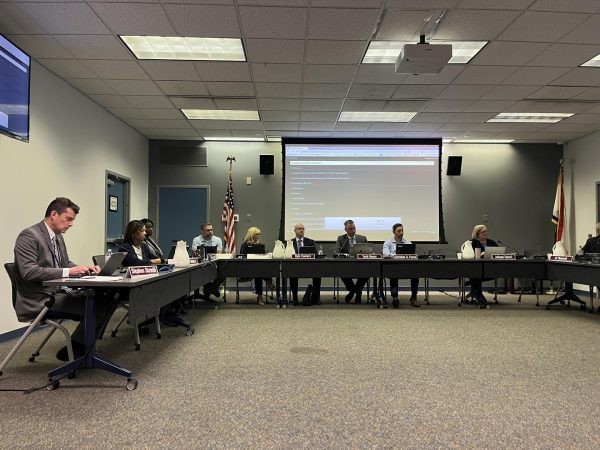


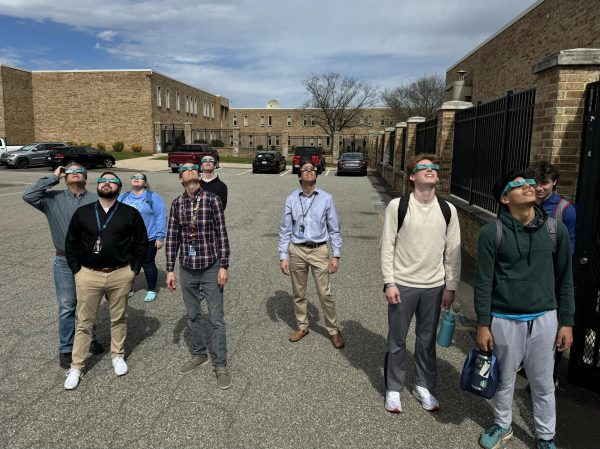

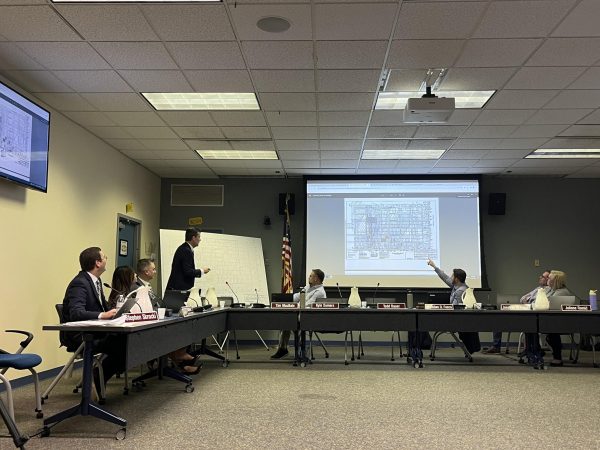

Sanaa Beaufort • Feb 26, 2021 at 12:06 pm
TOOOO GOOD!!! MARY THE WAY YOU PUT THIS TOGETHER IS AMAZINGGGGGGG.